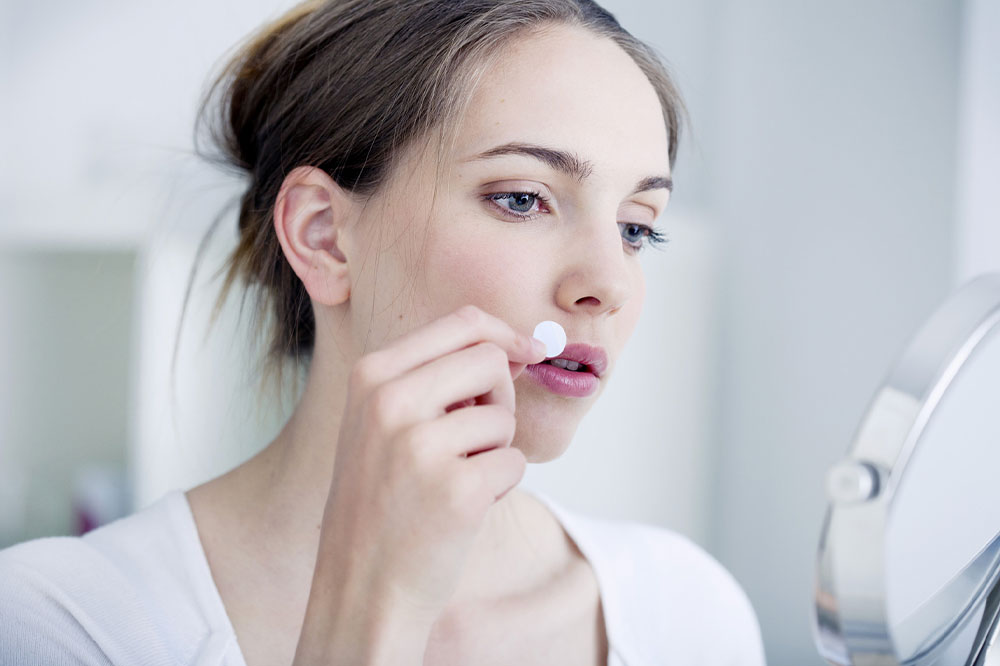Effective Ways to Manage and Prevent Herpes
Herpes is a prevalent health condition caused due to a virus. The virus travels down into the nerve cells, where it remains dormant until triggered by stress or illness. Once the virus is activated, it begins replicating and causing symptoms. It takes about two weeks for the signs to appear after infection, usually in the form of sores that affect specific body regions. Those who contract this disease experience recurring outbreaks.

Which virus causes herpes?
Herpes simplex virus (HSV) is the name of the virus that causes the condition. HSV is classified into HSV-1 (responsible for oral herpes) and HSV-2 (genital herpes). Both types are transmitted through direct contact with infected secretions from the mouth or genitals. The symptoms and causes are also similar. But HSV-1 is the more common form of this infection.
The virus can cause cold sores, fever blisters, shingles, genital herpes, chickenpox, and roseola. Herpes sores are painful and can last anywhere from two weeks to several months. They may appear as tiny red bumps or blisters filled with fluid. Sometimes, the sores can become ulcerated or crusted over. HSV can be spread even if the person has no symptoms, making it hard to prevent.
How is the disease treated?
There are several ways to treat the condition. The most popular herpes treatments are oral treatments and ointments:
Oral treatments
They help kill the virus, stop its replication, and reduce the outbreak’s severity. However, many patients choose not to use such herpes treatments because they have side effects. These side effects include headaches, nausea, diarrhea, fatigue, depression, anxiety, insomnia, and muscle aches. Also, such treatments must be used for several months, which can be frustrating. This is especially true for those who do not respond well to other treatments. Further, such herpes treatments are effective only if started early enough after the first outbreak and do not cure the condition completely.
Ointments
Besides oral treatments for herpes, several ointments are available. Herpes sores on the face and other regions can be treated by applying such topical solutions. They have been used for many years to treat minor cuts and wounds and can be applied topically to relieve pain. However, ointments can also have side effects, so people should talk to their doctor about the best way to manage their condition.
Are there any natural remedies?
Sometimes, doctors recommend natural remedies along with the above treatments to speed up recovery. Natural remedies for the disease include following a healthy meal plan and making suitable lifestyle adjustments. A few natural herpes treatments are discussed below:
Garlic
A few foods are highly beneficial in managing herpes. For instance, raw garlic contains a powerful compound called allicin, which can damage the DNA of the virus and stop it from replicating.
Vitamin C-rich foods
Another natural remedy is to add foods rich in vitamin C to the meal plan. This vitamin helps the body produce a protein that fights off viruses. Vitamin C also helps the immune system fight off health conditions caused by other viruses.
Cold compress
It is one of the best open herpes sore treatments. Patients can simply get an ice pack or cold compress and apply it to the sores throughout the day. Besides managing the sores, this is a suitable method to manage muscle pain and redness.
Aloe vera gel
Applying aloe vera gel to the affected regions is another effective natural remedy. Aloe vera works as a natural infection-prevention treatment and helps relieve pain. It can be applied to the affected area once a day. Ointments containing tea tree oil can also be used. But such remedies should be accompanied by drinking plenty of water and adding vitamin C-rich foods to the meal plan for the best results.
How to prevent the condition?
It is said that “prevention is better than cure.” Here are some preventive measures for herpes:
Safe intercourse
Since the disease is contracted through direct contact with an infected person’s fluid secretions, safe intercourse is advised. Individuals should follow this practice even when they have active lesions. Further, patients must avoid sharing razors, towels, toothbrushes, and any items used for personal purposes.
Healthy eating habits
Specific foods have compounds that can ward off the risk of this disease. For instance, adding cinnamon to meals can prevent herpes as it contains an antioxidant that may have protective effects against HSV-1. Lemon juice has also been shown to reduce the severity of symptoms associated with herpes outbreaks. Further, olive oil has antibacterial properties that help prevent the spread of the virus.
Apart from the herpes treatments and remedies mentioned above, patients must get plenty of rest and avoid stress to reduce outbreaks. Massage therapy is helpful for destressing, loosening tight muscles, and increasing blood flow to the skin. But, there is no cure for herpes. These options only help control the spread of the virus and reduce the frequency of outbreaks.


